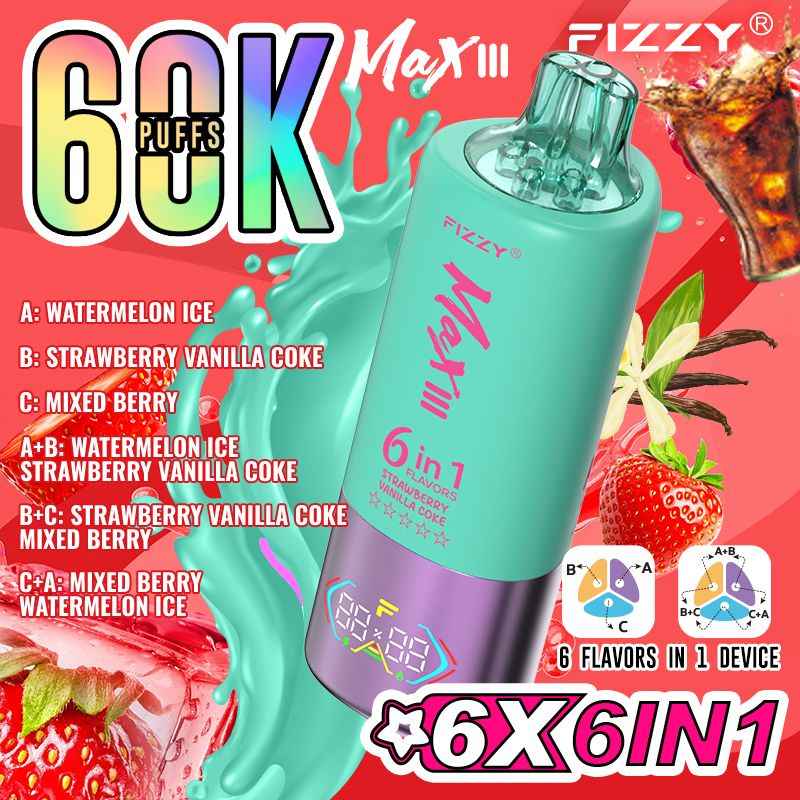Vaping in Italy 2025: tax rates on e-cigarette oils to increase, ban on online sales takes effect

In 2025, if you are vaping in Italy, then you will probably have to pay more taxes.
From January 1, 2025, Italy will increase the tax rate of nicotine-containing tobacco oils and ban online sales of e-cigarette products, while the tax rate of nicotine-free tobacco oils and flavors will also rise.
Italy’s vapes market on the rise
Italy’s traditional tobacco products, especially cigarettes, are reportedly losing market share, while new tobacco products have seen their market share soar from 4% to 18% in just four years (2019 to 2023). According to the European Commission, there are no harmonized regulations for new tobacco products across Europe, which leads to tax disparities and even encourages cross-border purchases and smuggling.
In light of changing consumer behavior and sales trends, Italian lawmakers redesigned the tax system for tobacco products. During the 17th Parliament, in addition to reforming the tax structure and standards for processed tobacco, an excise tax was imposed on non-combustible inhalation tobacco (HNB) and on alternative tobacco oils in vapes. The excise tax rates on these products have been adjusted several times over the past few years.
The Finance Bill 2020 also introduces an excise duty on tobacco accessories such as filters and cigarette papers. From May 1, 2024, nicotine-free vapes components will also be subject to excise tax.
The House Committee therefore believes that it would be useful to conduct a survey to understand the integrity of the tobacco chain and the evolution of the tax system. It is also necessary to assess the phenomenon of illicit sales and smuggling. The Italian Tobacconist Federation (Fit) reports that the total value of the illicit tobacco market exceeds 1 billion euros, resulting in a loss of tax revenue for the State of around 620 million euros, and a loss of around 120 million euros for tobacconists.
Taxes on vapes rising again?
Sigmagazine reported on December 31 that starting January 1, 2025, two new regulations will come into force in Italy concerning the online sale and taxation of nicotine-containing and nicotine-free vapes and their oils.
From January, the percentage of tax discount enjoyed by nicotine-containing tobacco oils will be reduced by 1%, from 15% to 16%, an adjustment that was already established in the budget law two years ago and will continue to be implemented in the coming years: by 2026, the tax rate will be increased by another 1% to 17%. This means that a 10 ml bottle of nicotine-containing tobacco oil will go up by about 11 euro cents in 2025 and another 12 euro cents in 2026. Similar increases will also affect nicotine-free tobacco oils and flavors, whose tax rate will reach about 90 euro cents per 10 milliliters in 2025 and increase to about 1 euro in 2026.
In addition, since January, a ban on online sales of nicotine-containing vape products has been in place, which applies to all online sales, including tax warehouses, and is intended to put nicotine-containing products on the same footing as traditional cigarettes by prohibiting their sale online.
Sigmagazine reported on December 10 that the number of websites banned by the Italian Customs and Monopolies Authority for illegal sales of tobacco oils and monopoly goods has surpassed 900 sites.
These newly reported sites have until Dec. 18 to complete corrective actions, with specific requirements including the removal of elements or products on the site that should not be available to individuals, such as disposable e-cigarettes and pre-mixed tobacco oils.
In addition, the Court of Turin recently ruled that e-cigarette products may not be promoted through commercial discounts or advertised in stores through flyers or posters. Websites can emphasize the technical features of the device or the taste of the flavor blends, but they cannot add any subjective comments or language to attract or draw the attention of consumers. Even potentially inappropriate information can result in the website being disabled and subsequently blocked.
Conclusion
Italian regulations on vapes have always been more lenient, and vaping in italy is not explicitly prohibited, either at airports or in some public places. However, with the development of the vape market and the growing number of users, vape smokers have formed a large group, even reaching teenagers. The improvement of laws and regulations shows that the influence of vapes is expanding, and it is hoped that it will be improved in the future.

